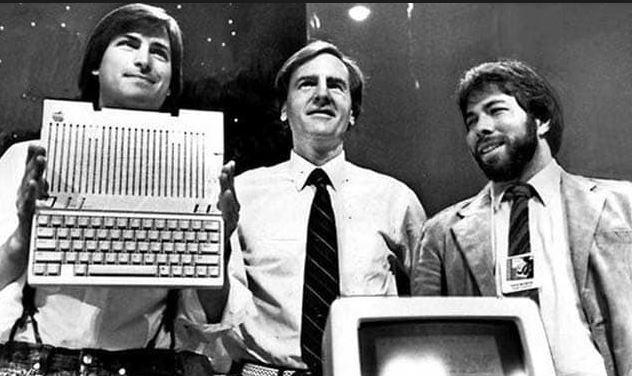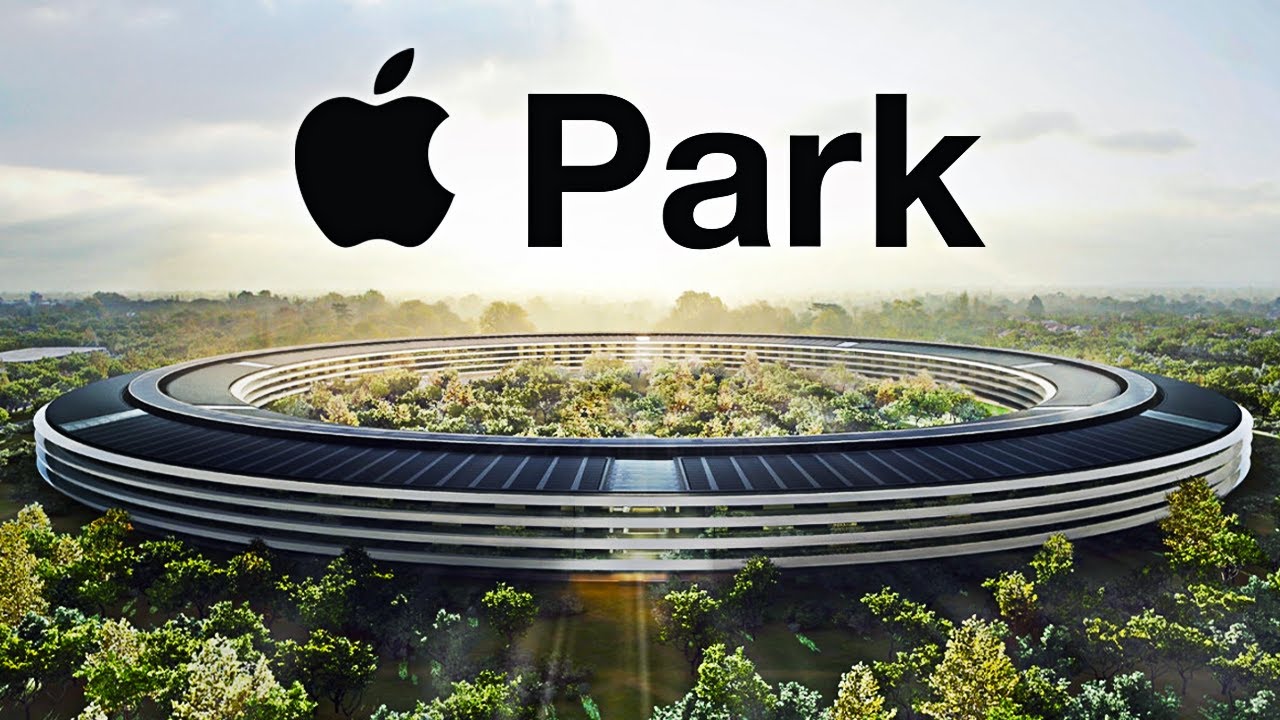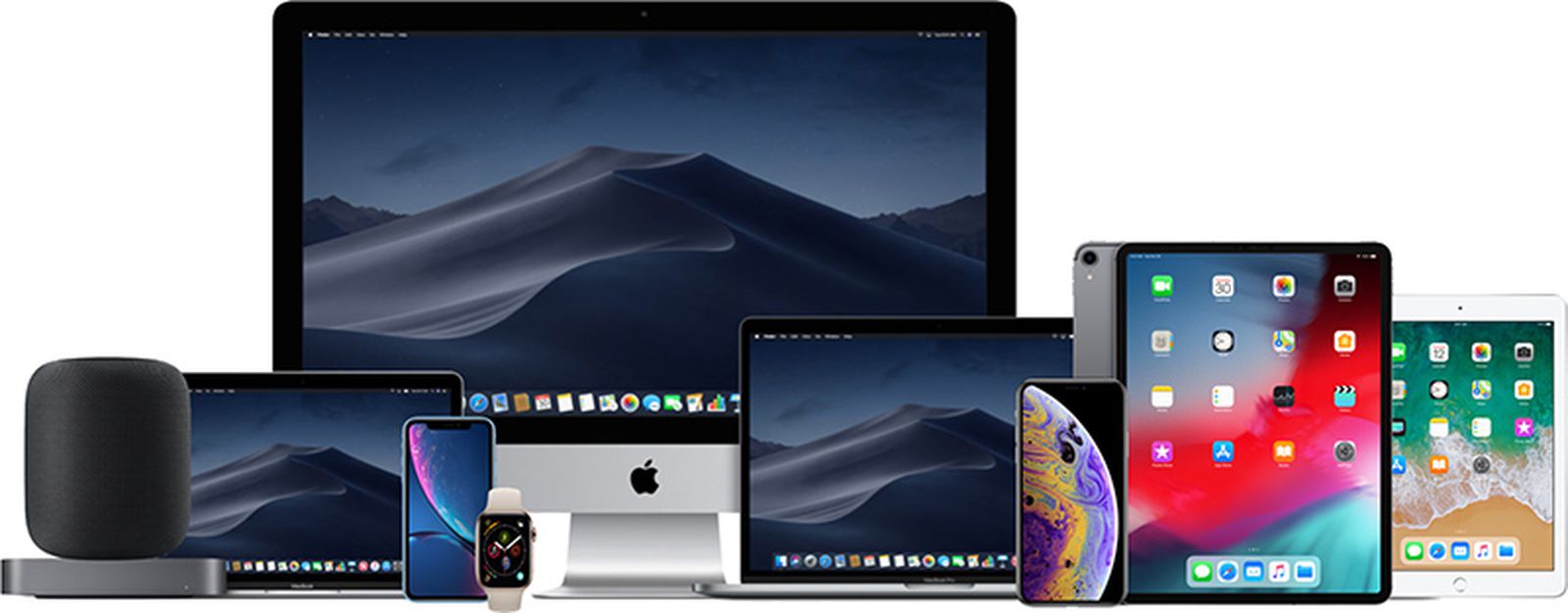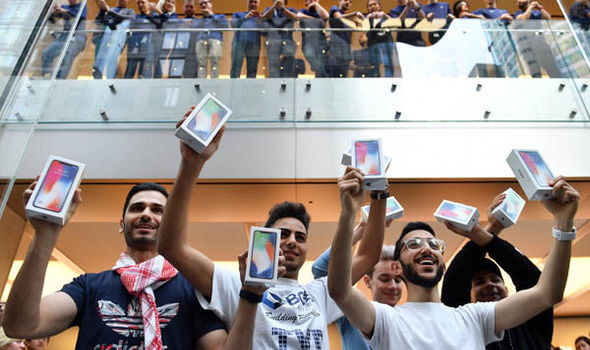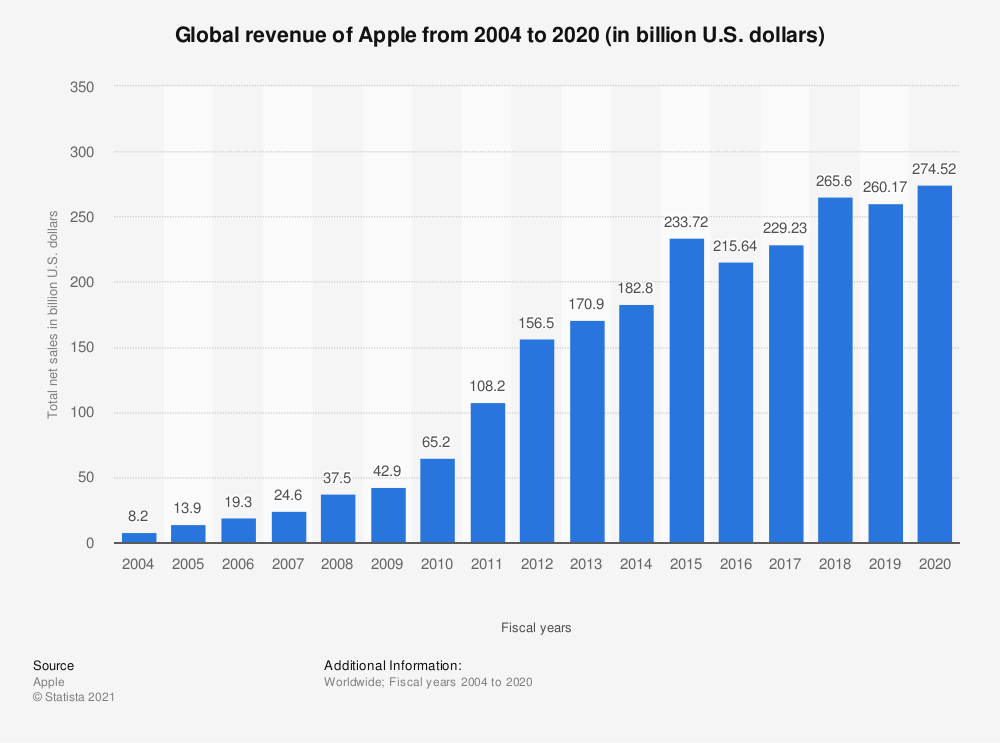Products & Services
Apple develops its own operating systems to run on its devices, including macOS for Mac personal computers,[349] iOS for its iPhone, iPad and iPod Touch smartphones and tablets,[350] watchOS for its Apple Watch smartwatches,[351] and tvOS for its Apple TV digital media player.[352]
For iOS and macOS, Apple also develops its own software titles, including Pages for writing, Numbers for spreadsheets, and Keynote for presentations, as part of its iWork productivity suite.[353] For macOS, it also offers iMovie and Final Cut Pro X for video editing,[354] and GarageBand and Logic Pro X for music creation.[355]
Apple's range of server software includes the operating system macOS Server;[356] Apple Remote Desktop, a remote systems management application;[357] and Xsan, a storage area network file system.[356]
Apple also offers online services with iCloud, which provides cloud storage and synchronization for a wide range of user data, including documents, photos, music, device backups, and application data,[358] and Apple Music, its music and video streaming service
Macintoshes currently in production:
- iMac: Consumer all-in-one desktop computer, introduced in 1998.
- Mac Mini: Consumer sub-desktop computer, introduced in 2005.
- MacBook Pro: Professional notebook, introduced in 2006.
- Mac Pro: Workstation desktop computer, introduced in 2006.
- MacBook Air: Consumer ultra-thin, ultra-portable notebook, introduced in 2008.
Apple sells a variety of computer accessories for Macs, including the Pro Display XDR, Magic Mouse, Magic Trackpad, and Magic Keyboard.
On October 23, 2001, Apple introduced the iPod digital music player. Several updated models have since been introduced, and the iPod brand is now the market leader in portable music players by a significant margin. More than 390 million units have shipped as of September 2015.[270] Apple has partnered with Nike to offer the Nike+iPod Sports Kit, enabling runners to synchronize and monitor their runs with iTunes and the Nike+ website.
In late July 2017, Apple discontinued its iPod Nano and iPod Shuffle models, leaving only the iPod Touch available for purchase
At the Macworld Conference & Expo in January 2007, Steve Jobs introduced the long-anticipated[274] iPhone, a convergence of an Internet-enabled smartphone and iPod.[275] The first-generation iPhone was released on June 29, 2007, for $499 (4 GB) and $599 (8 GB) with an AT&T contract.[276] On February 5, 2008, it was updated to have 16 GB of storage, in addition to the 8 GB and 4 GB models.[277] It combined a 2.5G quad band GSM and EDGE cellular phone with features found in handheld devices, running a scaled-down version of OS X (dubbed iPhone OS after the launch and later renamed to iOS), with various Mac OS X applications such as Safari and Mail. It also includes web-based and Dashboard apps such as Google Maps and Weather. The iPhone features a 3.5-inch (89 mm) touchscreen display, Bluetooth, and Wi-Fi (both "b" and "g"). The lates release to date is the iphone 12 series.
